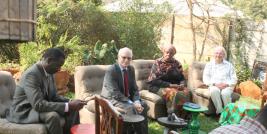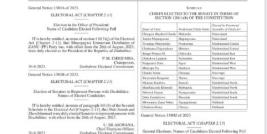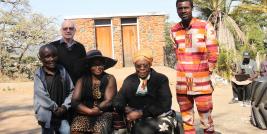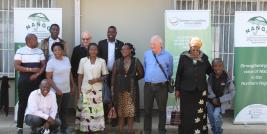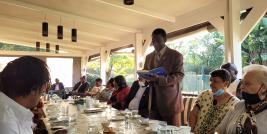The people of Zimbabwe begin 2020 with a huge food shortage due to prolonged drought and the ongoing impact of the seizure of commercial farms from 20 years ago. Water shortages are hurting many communities. Inflation has turned public service workers into beggars. The international community, including China, is standing back from any rescue package because the integrity of government is still uncertain, despite the replacement of the dictator Mugabe with a genuinely elected government.
Both doctors and teachers are frustrated in their wage demands. The hospital doctors’ strike appear to be broken.
A new terror has gripped parts of the country and urban areas – attacks on civilians by machete gangs. This shock continues the ongoing destabilisation campaign against the government, which has focused on the MDC Alliance and the G40 faction of Grace Mugabe now both inside and outside ZANU-PF. The US-based National endowment for Democracy hovers in the background of this destabilisation campaign.
The Mnangagwa government appears to be making significant headway against corruption and the G40 faction, through seizure of farms acquired by Grace Mugabe and G40 figures, and the work of the Zimbabwe Anti-Corruption Commission. It has also managed to crack down on the machete gangs.
As the year began, a major scandal around the National Railways of Zimbabwe re-capitalisation program started to unravel. However, it is not being treated as a case of corrupt governance, and this indicates ongoing internal conflict within the Mnangagwa government.
A very good development has been the ruling by the court against the action of Vice-President Chiwenga in using the military and ZACC to take action against his estranged wife, Marry Mubaiwa.
President Mnangagwa has begun moves to strengthen his powers by amending the Constitution, a process that is sure to discredit him and his government in the eyes of the international community and democratic Zimbabweans.
Zimbabwe Information Centre, Australia
January 30, 2020

